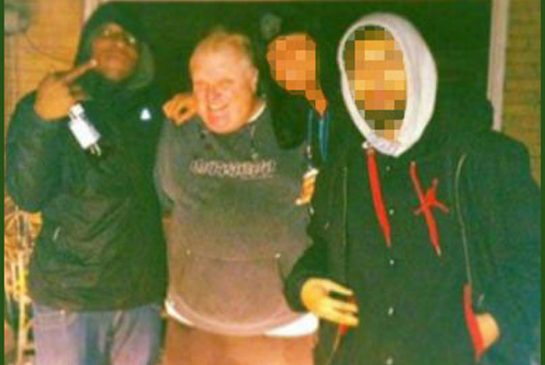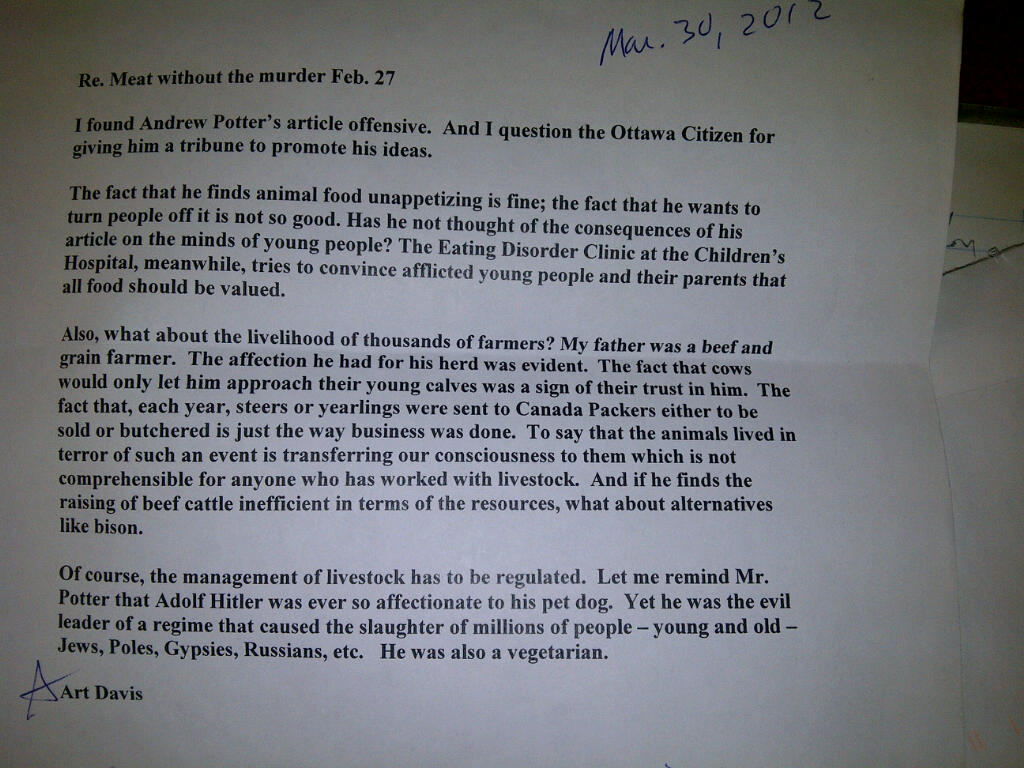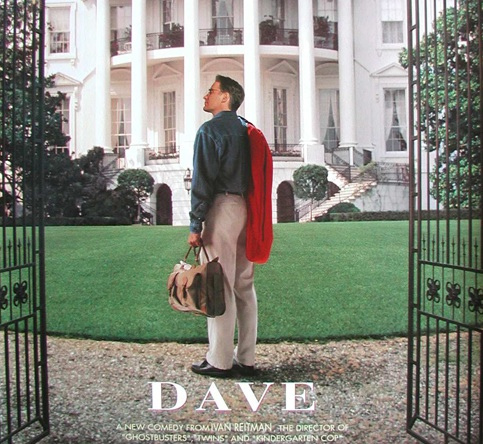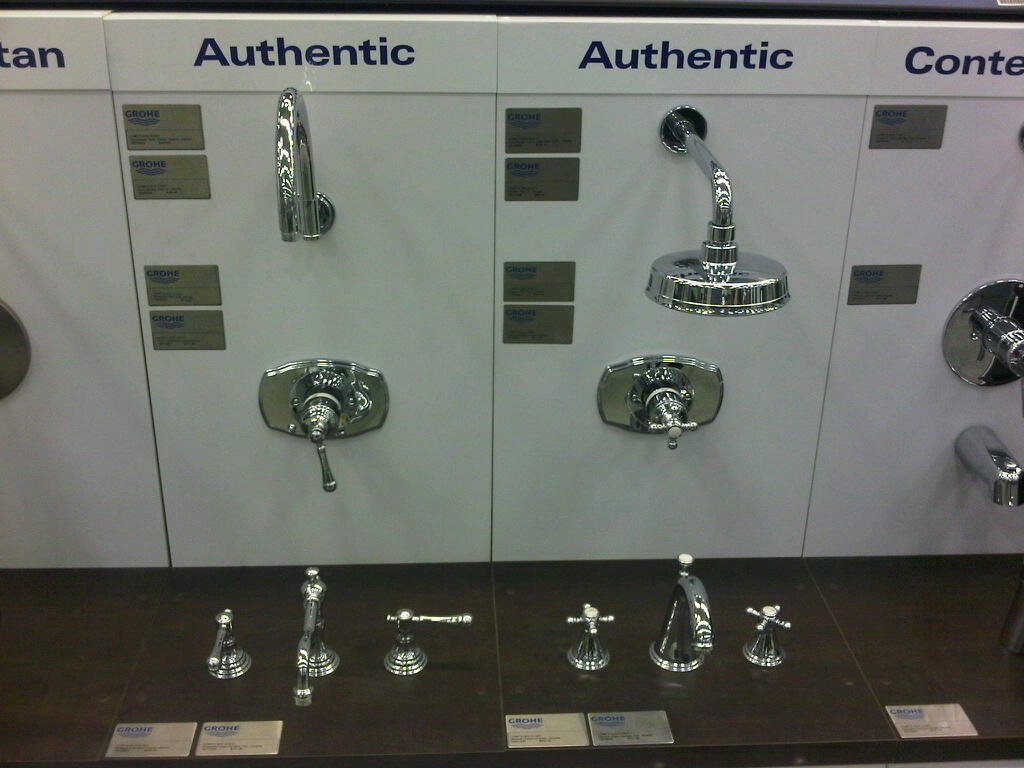Why Rob Ford is the Amy Winehouse of Canadian politics
 Monday, June 3, 2013 at 11:30PM
Monday, June 3, 2013 at 11:30PM
They tried to make me go to rehab but I said 'no, no, no' — singer Amy Winehouse, before dying of alcohol poisoning.
"Everything's going fine" — Toronto mayor Rob Ford, last week, after a bunch more staffers resigned.

By now it is pretty clear that whatever else he may be, Toronto mayor Rob Ford is a very sick man. He suffers from any number of pathological cravings, obsessions, and addictions, from food to sex to booze to whatever else. And like all addicts, he has more than his share of enablers — people who helpfully pave his road to self-destruction even as they pretend to be acting in his best interests.
I’m talking about the innumerable pundits and reporters and fly-by-night political commentators who have spent the better part of the last three years telling everyone who would listen that Rob Ford’s vices are actually virtues, that his addictions are features, not bugs, and that the Unique Selling Proposition that the mayor uses to keep Ford Nation barking at the moon is the fact that he’s “authentic”.
What is authenticity, and why does it matter to politics? That’s a tough question to answer in a short space — I wrote an entire book about the subject and don’t think I even really got to the heart of the matter. But like a lot of bad ideas, the cult of authenticity seems to have entered our political vernacular from the United States, where there has been, over the past decade, a growing conviction that the biggest problem with politics these days is that our leaders are not authentic enough.
The argument goes something like this: modern politics has become dominated by large political parties and their shiny, prefab leaders who are about image not substance, who speak only in sound bites and talking points, govern with both eyes on the overnight tracking poll, and who delight in breaking their promises while pretending they never made them in the first place and demonizing their opponents while purporting to take the high road. Modern politics is mass-marketed phoniness, and it is no surprise the electorate is completely alienated.
What we crave (to continue the story) is authenticity. The American writer Joe Klein signposted the search for the authentic in his 2006 book Politics Lost, an essay about the decline of authenticity in presidential politics. Klein took his inspiration from what he called Harry Truman's "Turnip Day" speech at the Democratic convention in 1948 that confirmed his nomination for president. Coming on stage after midnight, speaking plainly, simply, and without notes, Truman challenged the "do-nothing Congress" to act upon those views they claim to endorse, and get back to work.
Klein thinks we need more Turnip Day moments, more politicians like Truman. He argued politicians need to "figure out new ways to engage and inspire us — or maybe just some simple old ways, like saying what they think as plainly as possible."
It’s a good anecdote. The problem is now every authenticity-mongering pundit wants their own Turnip Day homily with which to beat the audience into submission. The most famous variation is David Brooks’ throw-away line about how Americans always vote for the presidential candidate they would most like to have a beer with. (A principle which, if true, would see Joe Biden elected president-for-life.)
A year and a half ago, the Canadian pundit Allan Gregg delivered a lecture to the Public Policy Forum called "On Authenticity: How the Truth can Restore Faith in Politics and Government” in which he claimed that our leaders' most systematic failure is that "they have not picked up on the electorate's craving for authenticity nor adjusted their behaviour to conform to this new reality."
Gregg had his own Turnip Day homily to explain just what he's getting at. He tells a story about the night he went to see a band in a club in Manhattan when the guitar player's electric pickup broke. Instead of stopping the show to fix the guitar, the band unplugged their instruments, moved closer to one another, and performed an intimate number. "As the last chord was struck, the room literally exploded with rapturous cheering, hooting."
Gregg saw a lesson in this for our politicians. What they need to do, he suggested, is unplug from the way they've always done things and try to reconnect with the electorate. They must drop the prefab talking points designed to "conceal meaning." They need to stop claiming to be the only island of virtue in a sea of knaves. They should cancel all political advertising, and talk straight to the people, saying what they mean and meaning what they say.
And the avatar of this movement, according to Gregg, is Rob Ford, whom he describes as "a leather-lunged, no necked, know-nothing." And in case you think that’s an insult, Gregg goes on: "In Rob Ford’s instance, his very crudeness and unrefined nature made him seem ‘real’ and signalled he was not trying to hide anything from voters." That is to say, Rob Ford won the race for mayor of Toronto because he’s authentic.
Allan Gregg is far, far, far, from the only person to have made this argument. The "Rob Ford is popular because he’s authentic" line started during the 2010 election and continues even as he fights to keep his job over allegations that he’s a crackhead. Here are some selected examples:
We've got some fascinating artifacts of authenticity on our political stage today, some good, some troubling. When Rob Ford was first elected, I stood in a public square listening to him speak, thinking, uh oh, this man is trouble for all who oppose him. Why? Because the mayor says what he means, and he doesn't give a flying fig what opponents think of him. — Judith Timson, Toronto Star, April 2013
Ford, who won by running as an unrefined, yet garishly authentic, outsider, is an outsider once more. His war against the downtown establishment - they of bike lanes and gravy trains - can now continue with renewed relish, and perhaps even success; if Ford runs again, he may well win. — Adam Goldenberg, Ottawa Citizen, November 27 2012
Christie Blatchford has written a number of columns lauding Ford for his "authenticity", and while she has made a point of saying that she regrets voting for him, she also makes a point of reminding readers why she voted for him in the first place. The key for Blatchford is not who Rob Ford is, it is who he is not: He wasn’t a part of what she calls "that soft-left ruling class” that likes to think they run Toronto. And so we get to:
Mr. Ford is surely deeply flawed. Well, so are most of us, me anyway. But, to use a modern term, he is also authentic. — Christie Blatchford, National Post, November 26 2012.
I could pile up the examples like cordwood — just Google “Rob Ford” and “authentic” and your evening will be shot — but you get the picture. The question is, what are we to make of it? How can we get any critical traction on Rob Ford when we are told, over and over again, that what looks to all the world like a serious problem with his character is actually his greatest asset?
It is tempting to rehearse, yet again, the arguments for why the desire for authenticity in politics is self-defeating, and prone to catalyzing the very problems it purports to solve. But instead I’ll try a different approach and suggest that what is being pitched as “authenticity” is actually something far more dangerous, for both the electorate and for the leader who cloaks himself in its embrace.
For starters, Ford’s supporters consistently mistake populism for authenticity. Authenticity, at its purest, represents a perfect alignment between the inner self and its outer manifestation. It describes someone who is self-contained but transparent to the world, innocent without being naive, and sincere without being cloying. Such a person, if he or she ever existed, would make an absolutely atrocious politician.
Rob Ford is not authentic. Instead, he’s just another populist. And in the current climate of North American politics, populism is just another put-on, a mask, a front, that some politicians adopt in order to seem like one of the people. In America, populists thump bibles and kiss babies and warn against commies and talk about craw fishin’ or huntin’ and talk about the Heartland and Families and the Family Farmer. In Canada, populists write books about hockey and hold press conferences at Tim Hortons and warn against commies and talk about hockey and warn about crime and defend the Family Farm and give medals to hockey players.
Again, populism is not authenticity. It’s a pose, a marketing position, a brand. And it is just as phony as any other political posture out there. Sometimes it works, as it did for Rob Ford. And sometimes it flames out spectacularly, as it did for that moose huntin' maverick mom, Sarah Palin.
But it isn’t clear that Rob Ford is even much of a populist. About the only truly populist kite he’s ever flown is the whole stop-the-gravy-train thing, which some people thought meant he was committed to lowering taxes. As it turned out, he actually thought there was a literal gravy train at City Hall and that stopping it would fix Toronto’s finances. He’s also a bigot and pretty obviously hates the gays, and if you want to call him a populist on those grounds, you’re welcome to the term and the baggage it brings with it.
No, there’s something more basic to Rob Ford’s personality, and there’s nothing that appealing, about it: the man has zero self-control. Whether it is reading while driving himself to work, drinking at official functions, going to KFC while on a much-publicized diet, or allegedly smoking crack and hanging out with drug dealers, it is clear that Rob Ford is simply incapable of resisting temptation, delaying gratification, or otherwise acting in a manner that is in anything other than his short-term interest.
And — it is crazy that this needs pointing out — there is nothing politically or morally praiseworthy about this. In the Republic, Plato hailed rational self-mastery of the passions as the key to both personal well-being and the proper functioning of the city. A few thousand years later, Freud suggested that the control of the id by the super-ego, moderated by the ego, was the key to being a properly formed adult, and the lynchpin of civilisation. In between and since, no one has seriously made the case that rule by the passions, the id, the animal instincts, whatever you want to call it, is a viable way to run a polity of any size. More to the point, no one has credibly argued that this is any way for a grownup to behave.
Except, that is, Rob Ford’s enablers, whose greatest fear is that Rob Ford will go to rehab and expose their ongoing support for what it really is: a dangerous and foolish egging-on of a very sick man. Which is what makes Rob Ford into less of a buffoon and more of a tragic figure. It turns Rob Ford into the Amy Winehouse of Canada.
Remember the first time you heard Winehouse singing “Rehab”? I do. I loved it. The casual defiance, the stick-it-to-the-man refusal to go along with square society’s medicalization of boozing. Which is weird, because I actually co-wrote a book critizing that very attitude – the studied rebellion that treats every institution, from grade school to the hospital, as part of the great conformist system of mass society.
But love it I did. We all did, for mostly the same reasons. Why should Amy Winehouse go to rehab? After all, weren’t her problems – her drinking, the drugs, the depression and the self-harming – the very font of her art, her creativity, and her soul? “Rehab” became a rallying cry for barflies everywhere. It also showed that, despite decades of public education on this issue, we still don’t take seriously the proposition that alcoholism, drug abuse, and even depression, are actual illnesses.
Imagine if, instead of being an alcoholic, Amy Winehouse had cancer. And imagine she wrote a song called “Chemo” with the lyrics “they tried to make me go to chemo, I said ‘no, no, no’”. Or if she had an infection, and she sang “they tried to give me antibiotics, and I said ‘no, no, no.” It would be a joke. But deep down, most of us don’t quite accept that alcoholism or drug addiction are diseases like any other. It’s self-destructive, sure, but there’s also something romantic about it. These are not new observations: the celebration of fucked-up artists is one of the defining features of our culture. When Amy Winehouse recorded “Rehab,” she was telling the world that she didn’t buy into the notion that her drinking was an illness that needed treatment. When we bought the record by the millions and gave her a Grammy for it, we told her we agreed.
Did this popular support play a role in her subsequent death? When she sang about not going to rehab and we cheered and called her authentic, did she internalise the value system we were pushing on her? That is, I wonder if Winehouse, like others before her and since, bought into her self-image as a messed-up singer of the blues, which made it that much harder for her to get clean.
I'm not suggesting she was simply playing a role, or that she killed herself in the name of cred, but there is a powerful looping effect in all of our identities. All identities are social constructs which get their power from being recognized by others. As a result, there is a feedback loop in our identity construction, where we internalise the norms that govern our chosen (or assigned) identities. When the norms of a given identity contain a built-in mechanism for both radicalisation and self-destruction (as they do for an identity like "messed-up singer of the blues"), it is not hard to see how it could become literally inescapable.
So then imagine you one day find yourself the mayor of one of the biggest cities in North America. You aren’t without your charms, and the people around you aren’t without political savvy. But you also have serious personal problems, which play havoc with your health, your personal life, and threaten your ability to do even the most minimal parts of your job. Yet the worse things get, the more you spiral down, the more your so-called supporters cheer you on.
What would you do? Where would you go? Who would you turn to for advice? In such circumstances, I think you would hope you could rely on someone who has known you all your life, who loves you for who you are but who knows that who you are involves habits and appetites that, unchecked, might get you and even others killed. That is, you would hope there was someone close to you who loved you like a brother.
Does Rob Ford have such a person near him? I honestly hope he does. His life almost certainly depends on it.
 Rob Ford,
Rob Ford,  amy winehouse,
amy winehouse,  authenticity,
authenticity,  crack,
crack,  gawker,
gawker,  politics,
politics,  toronto in
toronto in  politics
politics 



